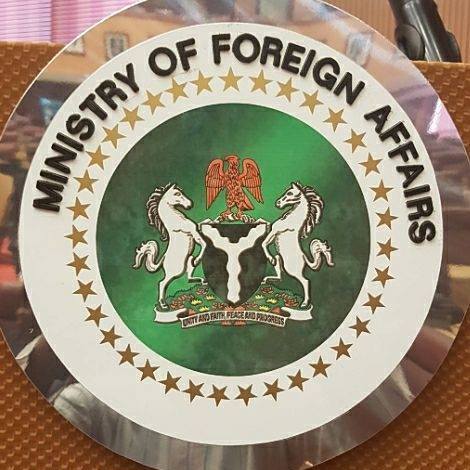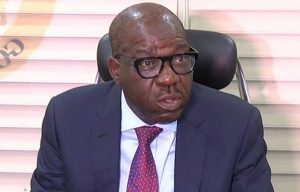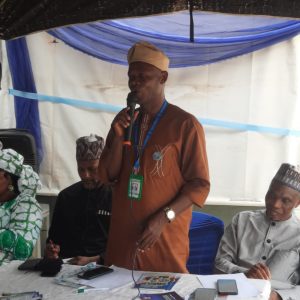Naira Devaluation Makes Budget Allocation Inadequate for Nigeria’s Foreign Missions
4 months ago 0
While the budgetary allocation for Nigeria’s foreign missions is in naira, expenses are in US dollars in these missions. Nigeria has about 109 foreign missions around the world.
In the past years, concerns have heightened on how poor funding affects Nigeria’s foreign policy implementation.
In November 2020, when the House Committee on Foreign Affairs faulted Nigeria’s lukewarm attitude towards the maltreatment of Nigerians abroad, former Foreign Affairs Minister, Geoffrey Onyeama, blamed it on the poor funding of foreign missions.

“Nigeria cannot get its international image to fit into the acceptable module of the international community if its foreign missions remain underfunded,” Mr Onyeama said.
In five years (2020 – 2024), Nigeria budgeted N397 billion for its foreign missions. This amount represents about 0.5 per cent of the country’s over N80 trillion annual budget within the period under review.
Lack of adequate funding led to the closure of Nigeria’s embassies in Sri Lanka, Serbia, and the Czech Republic between 2018 and 2019, the National Association of Seadogs (NAS) noted in its 2022 report on the state of Nigeria’s missions.
The group acknowledged that running a diplomatic mission is capital-intensive and called for increased budgetary allocation to foreign missions.
In response to several calls to improve funding for the Ministry of Foreign Affairs and the missions, the new foreign minister’s aide, Alkasim Abdulkadir, told PREMIUM TIMES that his principal sought “to place the ministry’s budget on the first line charge, to meet the needs and aspirations of the Ministry.”
In naira terms, the 2024 budget has the highest allocation for foreign missions in the last five years (2020-2024).
Explaining the rationale behind the increased budget, Mr Abdulkadir said the new administration’s desire to recalibrate Nigeria’s stand in the comity of nations informed the upward tick in the budgetary allocation for the ministry.
“The day-to-day running of the missions is expensive, which makes it difficult for missions to settle their statutory bills as and when due, because of inadequate budgetary provisions in the past,” he said echoing the 2022 NAS report.
However, although the naira value of the allocations has increased, the value in US dollars makes a joke of the new administration’s plan to reposition Nigeria and its foreign policy.
For example, the 2024 allocation for foreign missions (N130 billion) is $142.4 million, $17 million higher than that of 2023 (N80 billion) $125.3 million.
However, the 2024 allocation in real dollar terms is lower than the allocations in the three previous years before 2023.
In 2022, 2021 and 2020, foreign missions received N68.6 billion ($162.2 million), N65.1 billion ($163.6 million) and N54 billion ($150 million).
The allocated amounts were converted to dollars using the average exchange rates for each year.
Thus in real times, Nigerian missions abroad will, on average, receive less funding in 2024 than they did in 2020, 2021 and 2022.
Underfunding not new but counterproductive
Ayoola Olukanni, former Nigerian ambassador to Australia, noted that the problem of underfunding in Nigeria’s foreign missions is an age-long challenge.
“That was why it was suggested that a lot of our missions be converted to smart missions in terms of number of personnel,” he said.
Mr Olukanni said diplomacy is expensive but also very important hence closing down a mission due to lack of funds is not reasonable contrary to what many people suggest.
He added that eventually, missions that were closed down due to funding will at some point have to be reopened if important diplomatic issues arise. “It is more expensive to close a mission than to maintain it,” he said.
Therefore Nigeria must commit to fund its missions and find innovative ways to solve the problem, the diplomat added.
Mr Olukanni said appointing career diplomats to head these missions will also contribute to managing the funding challenges.
“I expected the budget increase to hold steady since 2020, especially with the 4D strategy this administration has developed,” said Timiebi Koripamo, retired Permanent Secretary and gender activist.
She noted that the insufficient funding of foreign missions could affect the morale of the officials working in such missions.
Mrs Koripamo said that maintaining and implementing Nigeria’s foreign policy should be a priority for every government and implementing this policy will only happen when officials are happy with their jobs.
PremiumTimes







